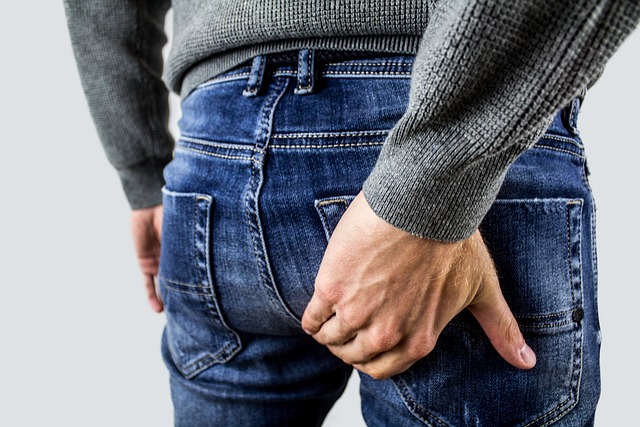Hemorrhoids are a common condition that affects millions of people worldwide. They can seemingly appear out of nowhere and cause discomfort and pain.
Hemorrhoids are swollen veins in the rectum or anus, and they can be internal or external. While they are not usually a serious medical condition, they can be quite uncomfortable and even painful.
In this article, we will discuss what hemorrhoids are, their causes, symptoms, diagnosis, treatment options, prevention tips, and when to see a doctor.
What are Hemorrhoids?
 Hemorrhoids are swollen veins in the rectum or anus that can cause discomfort and pain. There are two types of hemorrhoids: internal and external. Internal hemorrhoids occur inside the rectum and cannot be seen or felt. External hemorrhoids occur outside the anus and can be seen or felt as a lump or swelling around the anus.
Hemorrhoids are swollen veins in the rectum or anus that can cause discomfort and pain. There are two types of hemorrhoids: internal and external. Internal hemorrhoids occur inside the rectum and cannot be seen or felt. External hemorrhoids occur outside the anus and can be seen or felt as a lump or swelling around the anus.
Hemorrhoids can be caused by various factors such as straining during bowel movements, pregnancy, obesity, sitting for prolonged periods, and chronic constipation or diarrhea. They can also be caused by aging as the tissues that support the veins in the rectum and anus weaken over time.
Causes of Hemorrhoids
There are several factors that can contribute to the development of hemorrhoids. One of the most common causes is straining during bowel movements. This puts pressure on the veins in the rectum and anus, causing them to swell.
Pregnancy is another common cause of hemorrhoids as the growing uterus puts pressure on the veins in the pelvic area. Obesity is also a risk factor for hemorrhoids as excess weight puts pressure on the veins in the lower body.
Sitting for prolonged periods can also contribute to hemorrhoids as it puts pressure on the veins in the rectum and anus. Chronic constipation or diarrhea can also cause hemorrhoids as it puts strain on bowel movements.
Symptoms of Hemorrhoids
The symptoms of hemorrhoids can vary depending on the type and severity of the condition. Common symptoms of hemorrhoids include itching, pain, and bleeding during bowel movements. External hemorrhoids can be felt as a lump or swelling around the anus, while internal hemorrhoids cannot be seen or felt.
Other symptoms of hemorrhoids include discomfort or pain during bowel movements, swelling around the anus, and leakage of feces. In severe cases, hemorrhoids can cause blood clots, which can be very painful.
Diagnosing Hemorrhoids
Doctors can diagnose hemorrhoids through a physical exam and tests. During a physical exam, the doctor will examine the anus and rectum to look for signs of hemorrhoids. They may also perform a digital rectal exam to check for any abnormalities in the rectum.
In some cases, doctors may perform additional tests such as a sigmoidoscopy or colonoscopy to rule out other conditions that may cause similar symptoms.
Treatment Options for Hemorrhoids
There are several treatment options for hemorrhoids depending on the severity of the condition. Mild cases of hemorrhoids can be treated with over-the-counter creams and ointments that help reduce swelling and relieve pain.
Sitz baths are another effective treatment option for hemorrhoids. This involves soaking the affected area in warm water for 10-15 minutes several times a day to reduce swelling and relieve pain.
In more severe cases, surgery may be necessary to remove the hemorrhoid. This is usually done as an outpatient procedure and involves removing the swollen vein.
Prevention Tips for Hemorrhoids
There are several steps you can take to prevent hemorrhoids from developing. Maintaining a healthy diet and exercise routine can help prevent constipation and diarrhea, which are common causes of hemorrhoids.
Staying hydrated is also important as it helps keep stools soft and easy to pass. Avoiding prolonged sitting and taking breaks to walk around can also help prevent hemorrhoids.
When to See a Doctor for Hemorrhoids
It’s important to see a doctor if you experience persistent symptoms of hemorrhoids or if there is excessive bleeding. In some cases, hemorrhoids can lead to complications such as anemia or infection, which require medical attention.
Hemorrhoids are a common condition that can cause discomfort and pain. They can be caused by various factors such as straining during bowel movements, pregnancy, obesity, sitting for prolonged periods, and chronic constipation or diarrhea. While they are not usually a serious medical condition, they can be quite uncomfortable and even painful.
Treatment options for hemorrhoids include over-the-counter creams and ointments, sitz baths, and surgery. Preventing hemorrhoids involves maintaining a healthy diet and exercise routine, staying hydrated, and avoiding prolonged sitting. If symptoms persist or there is excessive bleeding, it’s important to seek medical attention.









